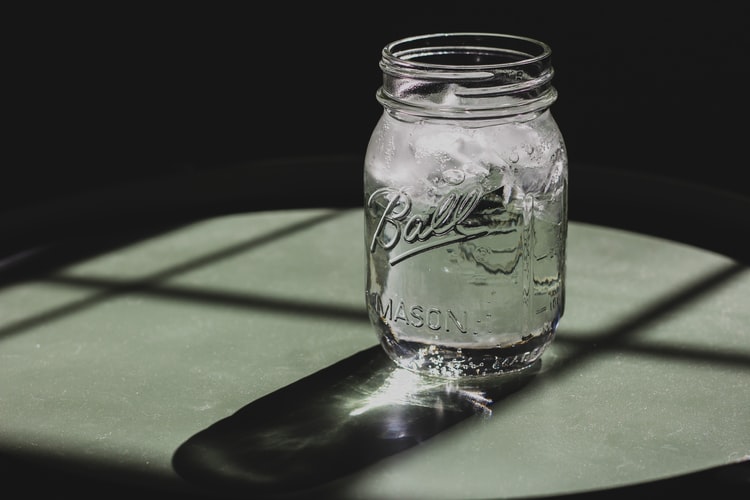How can drinking water affect mental health? Join us as we explore the importance of water for the human body, and how water consumption can affect your mood.
You’ve likely heard about the fact that drinking water affects mental health – but how well-founded is that claim? Does that mean that you have to be drinking water every hour to keep your spirits high? Is there a magical drinking water frequency formula for maintaining a good mood? Too many questions, we know – but science-backed facts are demonstrating that drinking water every day can not only help your body maintain optimal function, but it can also help with managing your mood and improving your mental health in the process, too.
In this article, we’re going to explore the benefits of drinking water; the signs and effects of dehydration, and how staying adequately hydrated can
Health Benefits Of Drinking Water
We consider the fact that drinking water is essential for life a “no-brainer”, which is funny, because our brain is actually the one giving us the order to do so! That’s, of course, more than understandable given how important water is to sustain life. All living organisms are dependent upon the presence of water to carry out their various functions, and the same applies for humans. Metabolic processes, in particular, which regulate the body’s energy production, are highly dependent on the body’s water equilibrium, and, as such, a lack of water, or an excess of it, can slow their speed and diminish their efficacy.
In addition to facilitating metabolism, the benefits of drinking water include, but are not limited to:
- Boosting cell function by facilitating the transport of nutrients and oxygen;
- Maintaining blood pressure within normal range;
- Protecting organs and tissues;
- Aiding digestion and preventing constipation;
- Maintaining electrolyte balance and stabilizing heart function.
Again, these are only some of the health benefits of drinking water, and, in order to be able to enjoy their full spectrum, you need to make sure you are getting enough hydration consistently, like drinking water before eating, and throughout your waking hours. If you don’t, you may experience dehydration, which is, essentially, the state in which your body is losing a larger quantity of fluids than the one you consume. You can find out some simple ways to stay hydrated and keep your kidneys healthy.
What Are The Symptoms Of Dehydration?
Some of the tell-tale signs of dehydration are:
- Feeling less of an urge to urinate, or infrequent urination
- Dark or deeply-colored urine
- Feeling faint, or fainting
- Fatigue
- Dryness in the skin and mouth
- Appetite changes
- A marked reduction in cognitive abilities, including trouble concentrating and retaining information
- Irritability, and, in extreme cases
- Psychosis
As you can see from the above symptoms, drinking water can have a profound impact in your mental health state, which can be either transient or chronic, depending on whether you’re taking action to amend them. But what are the exact ways with which water can impact the way you feel?
How Can Water Affect Mental Health?
To put matters into perspective, about 75%, or three-quarters of the human brain, consists of water. So, when your body is in a state of dehydration, even if mild, the brain is supplied with less water than it needs to function correctly, and, as a result, a cascade effect begins. Circulation slows down, which leads to lower blood flow, which, in turn, results in all parts of the body, including the brain, being poorly oxygenated.
As a result, cognitive function is impaired, and mood quickly starts to shift towards gloominess and even irritability. The reasons behind this seemingly instantaneous switch are still being investigated, but one common theory proposed is that it serves as an internal “warning mechanism” that something is wrong. If care is not taken to restore the body’s water equilibrium, symptoms intensify, reaching delirium and even coma and death. However, things certainly don’t get too far if left unattended, and there are simple things you can do to prevent the onset of dehydration and keep your body supplied with the amount of water it needs at all times.
How Can You Improve Your Water Intake?
You can start reaping the benefits of water by drinking water in the morning to wake up gently and nudge your body into action. What’s more, you can also finish off your day by drinking water before bed, so that you don’t get thirsty during the night, and that your body has adequate hydration to keep up with its needs while you sleep. You should also avoid drinking water during meals, for it will slow down digestion and cause discomfort. Instead, you should opt to drink two or three glasses between meals, so that you don’t reach the table feeling thirsty. And, if you want to ensure you have the best water quality of water in your home, you should make it a point to find household products.
Be mindful of the fact that waking up multiple times to drinking water at night may be a sign of diabetes or kidney problems. If you are experiencing such symptoms, be sure to consult with your medical provider for a health checkup.
Conclusion
Jacques Yves Cousteau, the legendary sea explorer who studied all forms of life in water, once said “We forget that the water cycle and the life cycle are one.” As is evident by the analysis presented in our article, water is not only crucial for the regulation of all biological processes carried out in the human body, but also, in both direct and indirect ways, vital for mood regulation. Monitoring the correlation between your water intake and your mood changes will help you better understand how much water you should consume, and how frequently within your day, in order to improve your physical and mental wellbeing.
Let us know in the comments: have you felt that there is a relationship between how you feel and how much water you have recently consumed? Does drinking a glass of water when you feel crabby or irritated help change your mood?
Author Bio
Thomas Nemel is a passionate writer based in Detroit, who motivated to spread the word of healthy living around the world. Besides writing, he loves to ride his motorbike, white water kayaking and working out in a gym.








